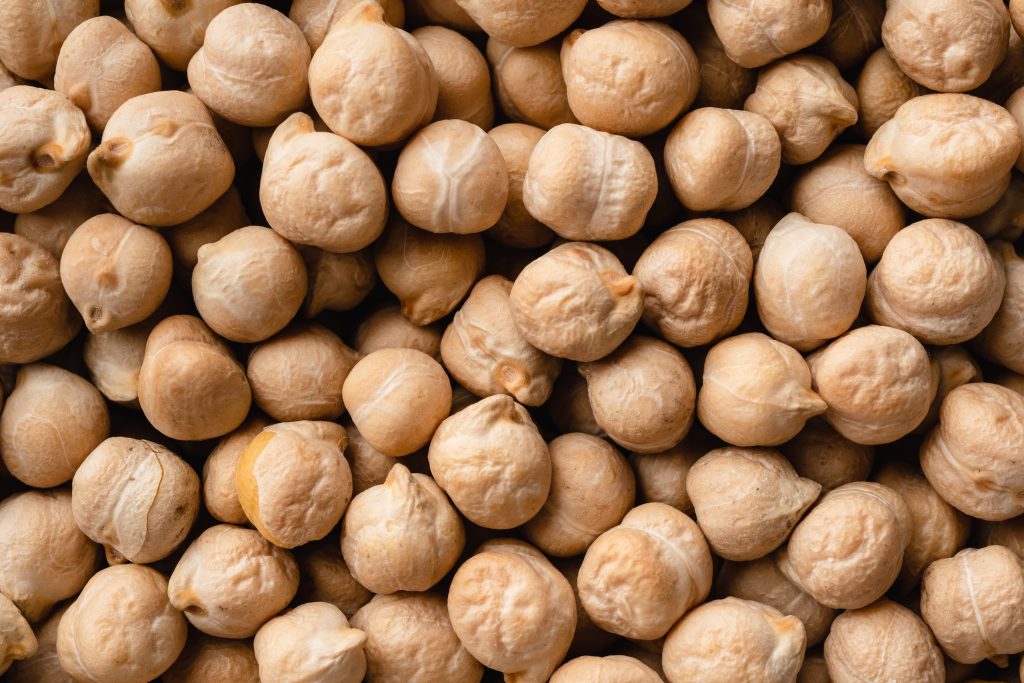Learn about the numerous health benefits of incorporating chickpeas into your diet.
Discover the Benefits of Adding Chickpeas to Your Diet
Chickpeas, also known as garbanzo beans, have been a dietary staple in many cultures for centuries. Not only are they versatile and delicious, but they also pack a powerful nutritional punch. In this article, we will delve into the many benefits of incorporating chickpeas into your diet. From their impressive nutritional profile to their numerous health benefits, we’ll explore all the reasons why you should start including these little legumes in your meals. So, let’s start exploring the wonderful world of chickpeas!
Understanding the Nutritional Profile of Chickpeas

Before we delve into the health benefits of chickpeas, it’s important to first understand their nutritional profile. Chickpeas are an excellent source of protein, essential vitamins, minerals, and fiber. Let’s take a closer look at each of these aspects.
The Protein Power of Chickpeas
Protein is an essential macronutrient that plays a crucial role in building and repairing tissues, supporting immune function, and maintaining a healthy metabolism. What sets chickpeas apart is their high protein content. With approximately 15 grams of protein per cup, chickpeas are an excellent plant-based protein source for vegans, vegetarians, and anyone looking to reduce their meat consumption.
But what makes chickpeas such a protein powerhouse? It’s all thanks to their amino acid profile. Chickpeas contain all nine essential amino acids, making them a complete protein source. This is especially beneficial for individuals who follow a plant-based diet, as it can be challenging to obtain all essential amino acids solely from plant sources.
In addition to their protein content, chickpeas are also low in fat and cholesterol-free. This makes them a heart-healthy choice for individuals looking to maintain or improve their cardiovascular health.
Vitamins and Minerals in Chickpeas
Chickpeas are also packed with vitamins and minerals that are vital for overall health and wellbeing. They are a rich source of folate, iron, magnesium, and potassium.
Folate, also known as vitamin B9, is essential for cell growth and development. It plays a crucial role in DNA synthesis and repair, making it particularly important during periods of rapid growth, such as pregnancy and infancy.
Iron is another key nutrient found in chickpeas. It helps transport oxygen throughout the body, supporting energy production and preventing iron-deficiency anemia. This is especially important for individuals with increased iron needs, such as pregnant women and those with heavy menstrual bleeding.
Magnesium, on the other hand, is involved in over 300 biochemical reactions in the body. It supports bone health, aids in muscle and nerve function, regulates blood sugar levels, and promotes a healthy immune system.
Potassium, a mineral that plays a key role in regulating blood pressure, is also abundant in chickpeas. Adequate potassium intake can help counteract the negative effects of sodium, reducing the risk of high blood pressure and cardiovascular diseases.
Fiber and Other Nutrients in Chickpeas
In addition to protein, vitamins, and minerals, chickpeas are an excellent source of dietary fiber. Fiber is crucial for maintaining a healthy digestive system and promoting regular bowel movements. It adds bulk to the stool, preventing constipation, and can also help prevent digestive disorders such as diverticulosis and hemorrhoids.
But the benefits of fiber don’t stop there. It also plays a role in weight management. High-fiber foods like chickpeas help you feel full and satisfied, reducing the likelihood of overeating. This can be particularly beneficial for individuals looking to lose or maintain weight.
Chickpeas are also loaded with antioxidants, which help protect against cell damage and reduce the risk of chronic diseases. Antioxidants neutralize harmful free radicals in the body, preventing oxidative stress and inflammation. This can help reduce the risk of conditions such as heart disease, cancer, and neurodegenerative disorders.
Furthermore, chickpeas contain a variety of other beneficial compounds, including phytochemicals and saponins. These compounds have been shown to have anti-inflammatory, antimicrobial, and anticancer properties, further enhancing the health benefits of chickpeas.
Health Benefits of Chickpeas
Now that we’ve explored the impressive nutritional profile of chickpeas, let’s dive into the incredible health benefits they offer.
Chickpeas for Heart Health
The fiber, potassium, and antioxidants in chickpeas all contribute to heart health. Fiber helps lower cholesterol levels, while potassium helps regulate blood pressure. Additionally, antioxidants can reduce inflammation and oxidative stress, which are linked to an increased risk of heart disease.
Furthermore, chickpeas contain a compound called isoflavones, which have been shown to have a positive impact on heart health. Isoflavones can help lower LDL (bad) cholesterol levels and reduce the risk of blood clots, thus promoting a healthy cardiovascular system.
Incorporating chickpeas into your diet can also provide you with a good amount of folate, a B-vitamin that plays a crucial role in preventing heart disease. Folate helps break down homocysteine, an amino acid that, when present in high levels, can damage blood vessels and increase the risk of heart disease.
Role of Chickpeas in Blood Sugar Control
Chickpeas have a low glycemic index, which means they have a minimal impact on blood sugar levels. This makes them an excellent food choice for individuals with diabetes or those looking to manage their blood sugar levels.
Moreover, the high fiber content in chickpeas slows down the digestion and absorption of carbohydrates, preventing rapid spikes in blood sugar levels. This steady release of glucose into the bloodstream helps maintain stable energy levels and prevents the onset of insulin resistance.
Additionally, chickpeas contain a type of carbohydrate called resistant starch, which is not fully digested in the small intestine. Instead, it passes to the large intestine, where it acts as food for beneficial gut bacteria. These bacteria produce short-chain fatty acids, which have been shown to improve insulin sensitivity and reduce the risk of type 2 diabetes.
Chickpeas and Digestive Health
As mentioned earlier, chickpeas are packed with fiber, which plays a crucial role in maintaining a healthy digestive system. Fiber helps promote regular bowel movements, prevents constipation, and supports the growth of beneficial gut bacteria.
Furthermore, chickpeas contain a specific type of fiber called soluble fiber, which forms a gel-like substance in the digestive tract. This substance helps soften the stool and adds bulk, making it easier to pass through the intestines. Soluble fiber also acts as a prebiotic, providing nourishment for the beneficial bacteria in the gut and promoting a healthy gut microbiome.
In addition to fiber, chickpeas contain a natural compound called saponin. Saponins have been shown to possess anti-inflammatory and antimicrobial properties, which can help protect the digestive system from harmful pathogens and reduce the risk of gastrointestinal disorders.
Chickpeas for Weight Management
If you’re looking to shed a few pounds or maintain a healthy weight, chickpeas can be a valuable addition to your diet. The combination of protein and fiber in chickpeas helps keep you feeling full for longer periods, reducing the likelihood of overeating or snacking on unhealthy options.
Protein is known to be the most satiating macronutrient, as it takes longer to digest and keeps you feeling satisfied. By including chickpeas in your meals, you can increase your protein intake and curb hunger cravings, ultimately supporting your weight management goals.
Moreover, the fiber content in chickpeas not only contributes to feelings of fullness but also slows down the digestion and absorption of nutrients. This slow release of energy helps stabilize blood sugar levels and prevents sudden spikes and crashes, which can lead to cravings and overeating.
Additionally, chickpeas are a nutrient-dense food, meaning they provide a significant amount of essential vitamins and minerals while being relatively low in calories. This makes them a satisfying and nutritious choice for those looking to maintain a healthy weight.
Incorporating Chickpeas into Your Diet
Now that you’re convinced of the incredible benefits of chickpeas, it’s time to explore how to incorporate these versatile legumes into your diet. Chickpeas, also known as garbanzo beans, are a nutrient-dense food that can be enjoyed in a variety of delicious and creative ways. Not only are they packed with protein, fiber, and essential vitamins and minerals, but they also offer numerous health benefits, including improved digestion, weight management, and heart health.
Here are some additional suggestions for incorporating chickpeas into your meals:
Chickpeas in Main Dishes
There are countless ways to incorporate chickpeas into your main dishes. From curries and stews to stir-fries and pasta dishes, chickpeas can add texture, flavor, and a dose of nutrition to any meal. Consider trying out a chickpea curry with aromatic spices, or adding chickpeas to a vegetable stir-fry for a protein-packed twist. You can also experiment with chickpea-based pasta recipes, where the chickpea flour is used to create a gluten-free alternative that is both nutritious and delicious.
Chickpeas in Salads and Soups
Chickpeas are a fantastic addition to salads and soups. They can add a hearty texture and boost the nutritional value of your meal. Toss chickpeas into your salads for a protein-packed crunch, along with fresh vegetables and a tangy dressing. For a comforting and filling bowl of goodness, add chickpeas to your favorite soup recipes. Whether it’s a classic minestrone or a spicy Moroccan harira, chickpeas will elevate the flavors and provide a satisfying meal.
Chickpeas as a Snack
Got the munchies? Instead of reaching for a bag of chips or cookies, why not grab a handful of roasted chickpeas? Roasted chickpeas are not only delicious but also offer a healthier alternative to processed snacks. Simply toss cooked chickpeas with olive oil, salt, and your favorite seasonings, then bake them until crispy. You can experiment with different flavors like spicy paprika, tangy lemon pepper, or savory garlic and herb. These crunchy bites make for a satisfying snack that will keep you energized throughout the day.
With their versatility and nutritional benefits, chickpeas are a wonderful addition to any diet. Whether you choose to incorporate them into main dishes, salads, soups, or enjoy them as a snack, you’ll be reaping the rewards of this superfood. So go ahead and explore the world of chickpeas – your taste buds and your body will thank you!
Precautions and Potential Side Effects
While chickpeas are generally safe for most people to consume, there are a few precautions and potential side effects to keep in mind.

Allergies and Intolerances
Some individuals may have allergies or intolerances to legumes, including chickpeas. If you experience any adverse reactions after consuming chickpeas, such as hives, itching, or digestive issues, it’s best to consult with a healthcare professional.
Dietary Restrictions and Chickpeas
If you have specific dietary restrictions, such as following a low FODMAP diet, it’s important to consult with a registered dietitian or healthcare professional before incorporating chickpeas into your meals. They can guide you on portion sizes and suitable alternatives.
Overconsumption Risks
While chickpeas offer an array of health benefits, it’s essential to practice moderation. Consuming excessive amounts of chickpeas can lead to bloating, gas, and digestive discomfort. As with any food, balance is key.
So, whether you’re a fan of hummus, enjoy adding chickpeas to salads, or love experimenting with new recipes, there’s no denying the numerous benefits of adding chickpeas to your diet. Not only are they nutritious and versatile, but they also offer a delicious way to enhance your meals. So next time you’re at the grocery store, make sure to stock up on these little nutritional powerhouses!







